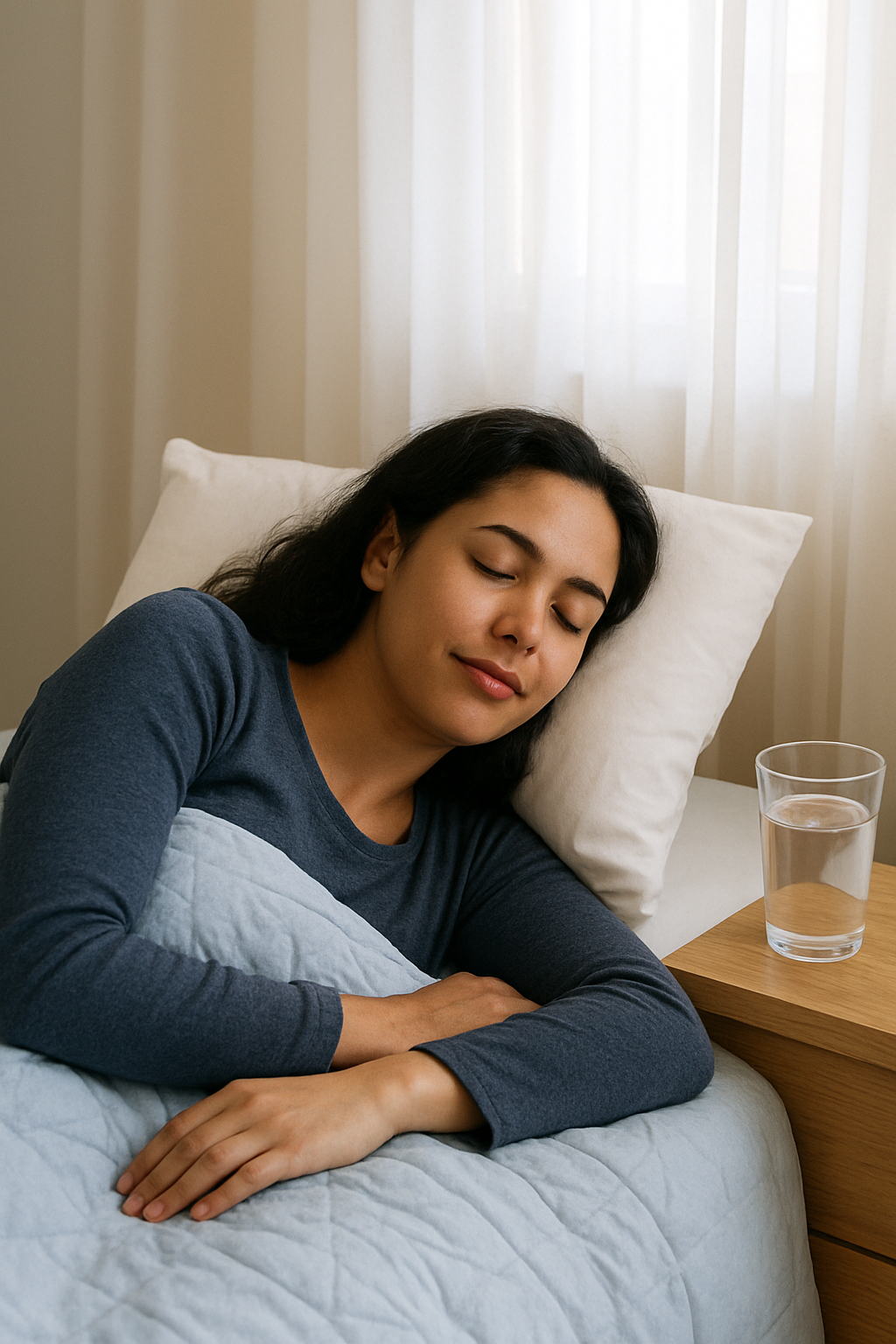Quality sleep is essential for physical recovery, mental clarity, mood regulation, and overall well-being. Yet many people struggle to fall asleep, stay asleep, or wake up feeling rested — and often turn to medications for help. While short-term use of sleep aids can be useful in some cases, they aren’t always a long-term solution.
Fortunately, there are natural, practical, and effective ways to improve your sleep quality — without relying on pills.
Why Sleep Matters So Much
Sleep is when your body and brain:
- Restore energy and repair tissues
- Balance hormones
- Process emotions and memories
- Strengthen the immune system
- Regulate hunger and stress responses
Chronic sleep deprivation increases the risk of anxiety, depression, heart disease, diabetes, weight gain, and burnout.
1. Stick to a Consistent Sleep Schedule
Your body thrives on routine. Going to bed and waking up at the same time every day — even on weekends — strengthens your circadian rhythm.
Tips:
- Choose a realistic bedtime and stick to it
- Set an alarm not just to wake up, but to start winding down
- Avoid long naps late in the day, which can disrupt nighttime sleep
Even slight consistency helps your body learn when it’s time to sleep.
2. Create a Sleep-Friendly Environment
Your bedroom should be a sanctuary that signals rest and safety.
Here’s how to optimize it:
- Keep it cool: Ideal temperature is around 18–20°C (64–68°F)
- Make it dark: Use blackout curtains or a sleep mask
- Reduce noise: Use earplugs or white noise
- Declutter: A calm space supports a calm mind
- Choose the right mattress and pillow: Comfort matters more than you think
Avoid working or watching intense shows in bed — keep the space associated only with sleep and rest.
3. Limit Screens and Blue Light Before Bed
The blue light from phones, TVs, and computers can suppress melatonin, the hormone that tells your body it’s time to sleep.
Tips:
- Avoid screens for at least 1 hour before bed
- Use “night mode” or blue light filters in the evening
- Read a paper book or listen to calming music instead
- Keep phones out of reach or outside the bedroom
Digital detox at night = deeper sleep.
4. Watch What You Eat and Drink
Your dinner and late-night habits play a major role in sleep quality.
Avoid:
- Caffeine after 2 p.m.
- Alcohol before bed (it disrupts deep sleep)
- Heavy, spicy, or greasy meals at night
- Drinking too much water in the evening
Instead:
- Eat at least 2–3 hours before bedtime
- Opt for light snacks with tryptophan, magnesium, or complex carbs
(e.g., banana with almond butter, oats, or chamomile tea)
5. Try a Calming Nighttime Routine
A predictable wind-down routine signals your brain it’s time to relax.
Ideas:
- Take a warm shower or bath
- Do gentle stretching or yoga
- Meditate or practice slow breathing
- Write in a gratitude journal
- Use calming scents like lavender or sandalwood
Even 20–30 minutes of relaxation before bed can improve sleep onset and depth.
6. Reduce Stress Throughout the Day
Poor sleep isn’t just a nighttime problem — it starts with daytime stress levels.
What helps:
- Regular physical activity
- Expressing emotions (journaling, talking, therapy)
- Deep breathing exercises or mindfulness
- Spending time in nature
- Avoiding overcommitment or burnout
A calm day makes for a calm night.
7. Use Natural Light and Movement to Regulate Sleep
Your body’s internal clock is strongly influenced by light and movement.
Tips:
- Get sunlight exposure in the first hour of the day
- Stay active (even light walking boosts sleep hormones)
- Avoid bright artificial light at night
- Limit naps to 20–30 minutes, early in the afternoon if needed
Your body knows when to rest — but it needs the right cues.
8. Keep a Sleep Journal
If you’re struggling, track:
- What time you go to bed and wake up
- What you ate/drank
- How much screen time you had
- Your stress or mood levels
- How restful your sleep felt
This helps identify patterns and triggers that you might not notice otherwise.
You Deserve Rest — Naturally
Great sleep isn’t a mystery — it’s a habit. With consistency and care, you can retrain your body and mind to rest deeply, wake refreshed, and move through your day with more clarity and energy.
You don’t need perfect conditions — just the right choices, repeated over time.
Tonight, give yourself permission to unplug, unwind, and surrender to rest.
